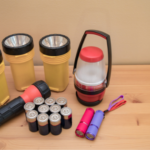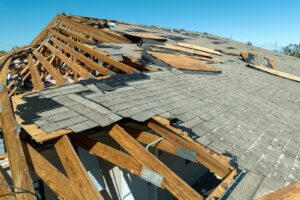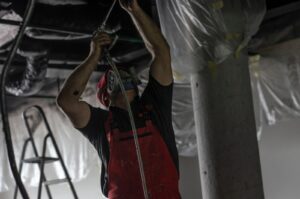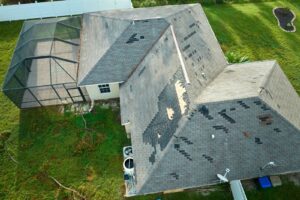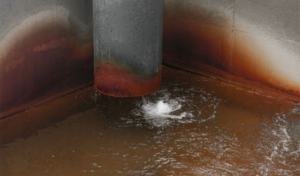Power outages are never convenient, but some scenarios may be more difficult to deal with than others.
Having essentials like food water, lighting, shelter, and battery life ready go will make a tough situation much easier. You never know when a power outage will strike or how long it will last.
A standard rule of thumb is that you are prepared for at least 72 hours.
Most outages will not last that long, but there is certainly some peace of mind to being prepared for the worst case scenario. Most of these items are easy to obtain and will last long term.
Battery Power
During a power outage, it is invaluable to have another source of power. Having batteries, chargers, or even generators will be extremely helpful. You may or may not have cell service during a power outage, but if you do, you’ll be grateful to have a way to charge your phone. Having extra batteries for anything else in your emergency pack is also a good idea—batteries for flashlights, headlamps, lanterns, cooking supplies, and so on.
Lighting
One of the hardest parts of a power outage is the darkness. You never know when an outage may strike or how long it may last. If you need to go through the night without electricity, have some backup lighting ready. This means flashlights, headlamps, lanterns, etc. It may also be helpful to have some lighting that does not depend on battery power, in case you are using it long term. Things like candles, matches, oil lamps, LED lights, etc., are a good idea.
Food and Cooking
Storing food that you will not need to cook is a great idea, but it’s also helpful for cooking utensils. Have canned foods (and a can opener) ready. Anything that doesn’t need refrigeration, water, or cooking, and can last a long time, is a great food storage option. This may include granola bars, canned goods, dried foods, etc. Including a propane grill or camping stove may also be helpful. If you are without power long term, it may be nice to have a warm meal.
Water
Water is essential to survival. Be sure that you store enough clear water for you and everyone in your house for at least 72 hours. Plan on at least one gallon per person per day. It may also be helpful to have some sort of water purifiers, such as tablets or a filtration system.
Shelter
You will likely be in your home for a power outage, but there is still some shelter that may be helpful. Have extra clothing, blankets, screen for windows, etc. A power outage during the winter means no furnace or heater. If the outage is due to a storm, you could also have broken windows. Have what you need on hand to make do in an emergency situation. It may even come in handy to have a tent for your family.

